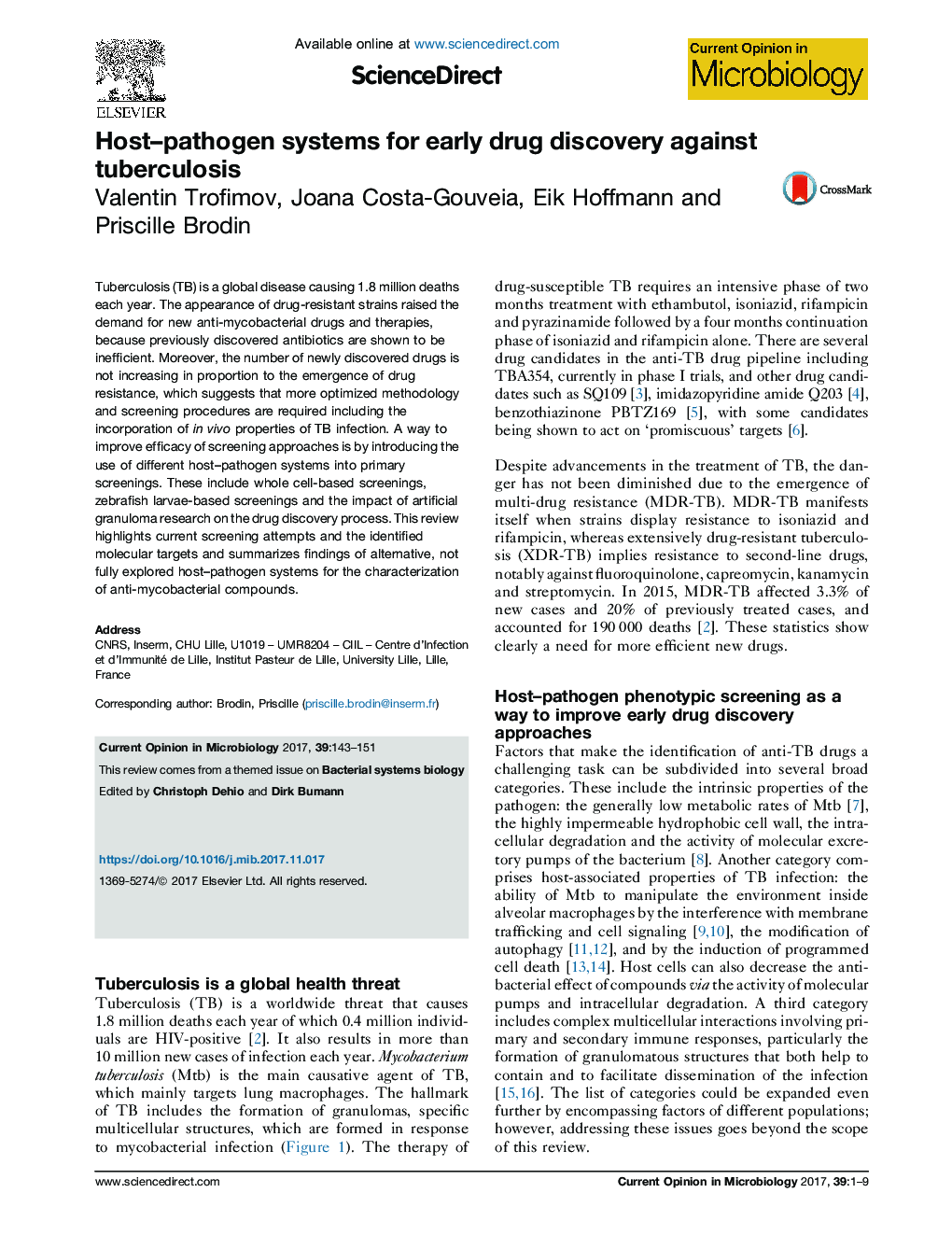| Article ID | Journal | Published Year | Pages | File Type |
|---|---|---|---|---|
| 8745142 | Current Opinion in Microbiology | 2017 | 9 Pages |
Abstract
Tuberculosis (TB) is a global disease causing 1.8 million deaths each year. The appearance of drug-resistant strains raised the demand for new anti-mycobacterial drugs and therapies, because previously discovered antibiotics are shown to be inefficient. Moreover, the number of newly discovered drugs is not increasing in proportion to the emergence of drug resistance, which suggests that more optimized methodology and screening procedures are required including the incorporation of in vivo properties of TB infection. A way to improve efficacy of screening approaches is by introducing the use of different host-pathogen systems into primary screenings. These include whole cell-based screenings, zebrafish larvae-based screenings and the impact of artificial granuloma research on the drug discovery process. This review highlights current screening attempts and the identified molecular targets and summarizes findings of alternative, not fully explored host-pathogen systems for the characterization of anti-mycobacterial compounds.
Related Topics
Life Sciences
Immunology and Microbiology
Microbiology
Authors
Valentin Trofimov, Joana Costa-Gouveia, Eik Hoffmann, Priscille Brodin,
